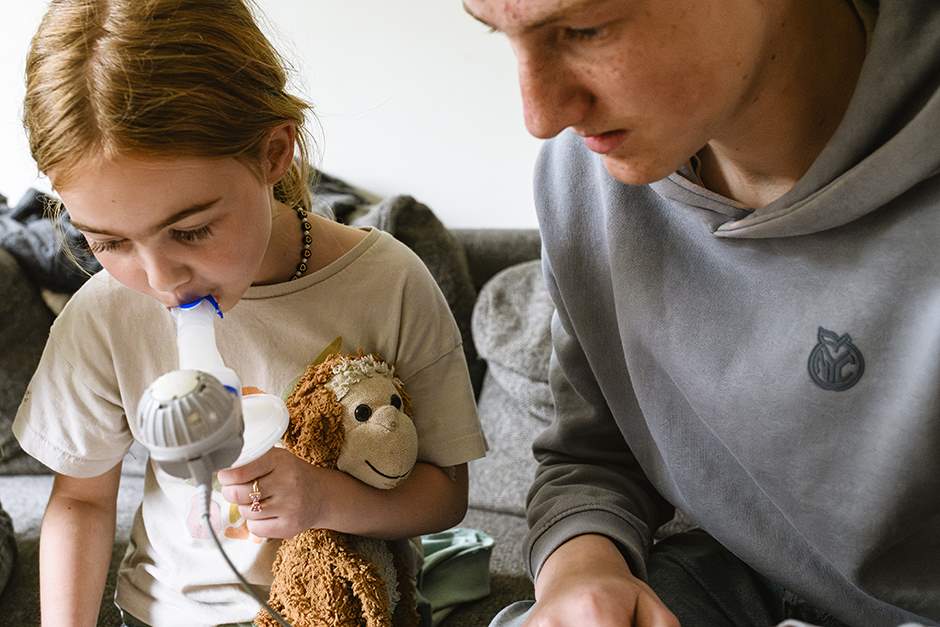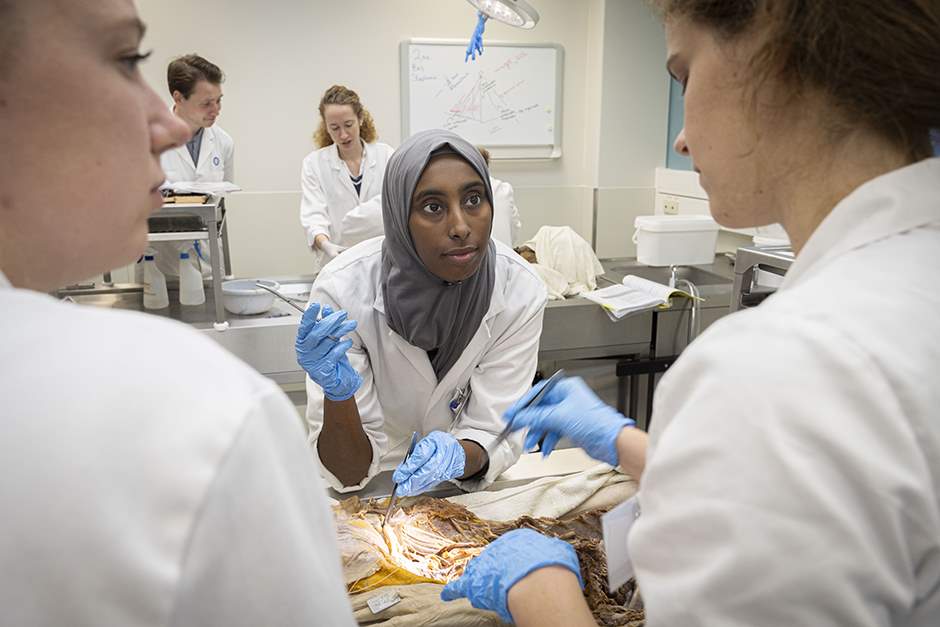Cooperations with an international impact
From Utrecht to Yale: create opportunities to protect babies and children against the RS virus
In 2024 we made good progress within the network to prevent severe diseases caused by the RS virus in babies and children . We are doing extensive research on this virus at UMC Utrecht and are taking the lead in European research in this field. At the beginning of 2024, this led to a recommendation from the Dutch Health Council to vaccinate children against the RS virus through a national vaccination program (Rijksvaccinatieprogramma). What’s more, Yale University, one of the most esteemed private institutions in the United States, appointed Louis Bont, our professor in childhood respiratory infections, as visiting professor . Yale University thereby recognizes the global impact of our vaccination research on the RS virus. This cooperation reinforces our research network. Together, we prevent (severe) disease caused by RS-virus infection in babies and young children. And at the same time, keep healthcare accessible.
European research on the effective treatment of cystic fibrosis with fewer side effects
In 2024, a unique clinical study was launched on personalized treatments for patients with cystic fibrosis (CF). Before a patient took part in the study, we first of all cultivated mini intestines (intestinal organoids) from the patient’s own intestinal cells, and then tested the effects of a drug on the organoids in a laboratory. The organoids react in the same way to a drug as the patient would. This approach enabled us to see quickly whether a certain drug would work for the specific patient. The approach in this study makes it faster and cheaper to develop new treatments for people with cystic fibrosis. It also increases patients’ chances on finding an effective treatment with fewer side effects. 14 Centers in 10 different European countries are taking part in this research. The study is coordinated from the 030 Lab, in which Wilhelmina Children’s Hospital (WKZ) collaborates with Utrecht University, the Princess Máxima Center, and all disciplines at UMC Utrecht. In 2024, the first European patient in the Netherlands took part in the study at Wilhelmina Children’s Hospital. Organoids are an invention of UMC Utrecht among others.

European cooperation with Eureka: scientific research by healthcare professionals of the future
The aim of scientific research in healthcare is ultimately to let patients and society benefit from it. In order to help Master’s and PhD students at the beginning of their scientific career to stay focused on and achieve this goal, we collaborate with Eureka (Eureka Institute for Translational Medicine) . In 2024, we renewed our partnership with Eureka for another 5 years. We were for example once again able, together with Eureka, to present the Eureka International Summer Course on Translational Medicine . A week-week long immersion in science for 30 Master’s and PhD students and doctors training as medical specialists from various countries. In this way, we are training and inspiring the healthcare professionals of the future.
Timely and effective care for terminally ill children in Europa
UMC Utrecht is one of 17 international partners of Palliakid , a European project that aims to provide timely access to effective care for children who are terminally ill. In Europe each year, about 170,000 children do not receive proper palliative care, although they are in need of it. The start of 2024 saw the kick-off of Palliakid. In this project, use is made of the IMPACT dialog method , which was developed by colleagues at UMC Utrecht. One of the pillars of effective pediatric palliative care is to talk and decide together what the purpose of the treatment and care should be, and what the preferences are. IMPACT offers materials to conduct this conversation between the healthcare professional, the child, and the family.
Students help to provide in the need for information of youngsters with hemophilia A
In 2024, students of the Life Sciences & Society profile of the Graduate School of Life Sciences collaborated with Roche on a research project. Roche is a company that develops drugs. In this project, students studied what youngsters (aged 16-25) want to know about living with hemophilia A, which is a lifelong disease. The students were in touch with youngsters and investigated which information they needed, how they wanted to receive it, and how Roche could help with this. Based on their study, the students drew up an advisory report with concrete recommendations for Roche on how they could help these youngsters. During the collaboration, the students were able to bridge the gap between science and society, but also between Roche as stakeholder and the patient-representation groups.
